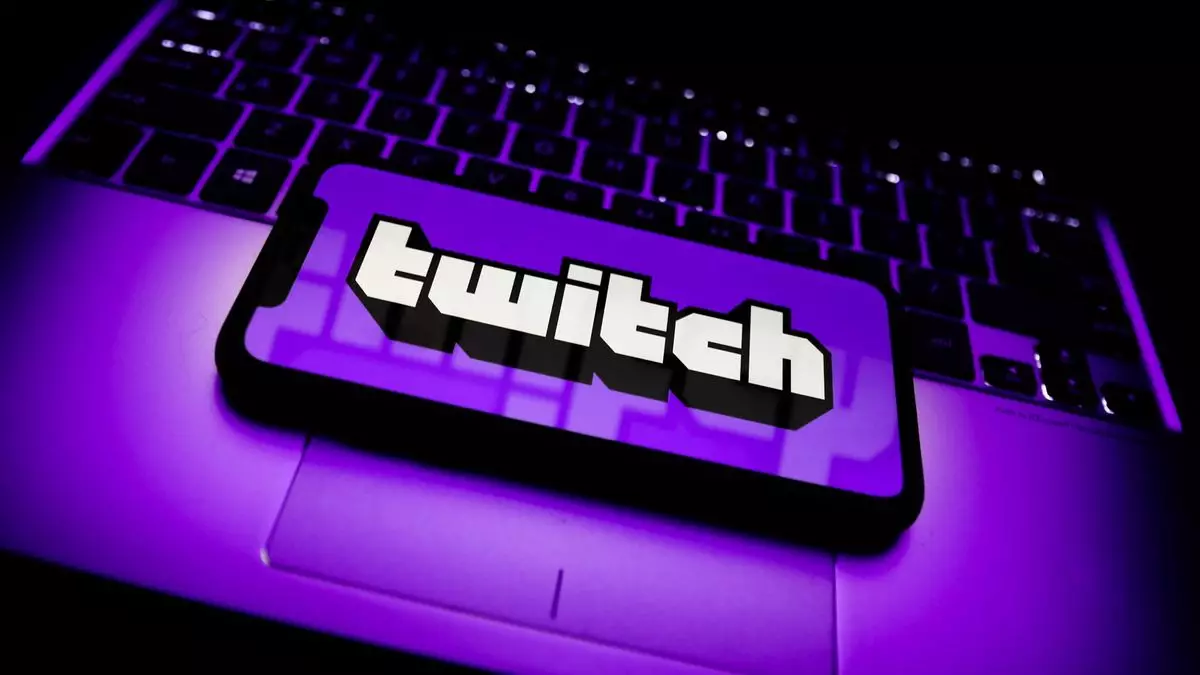In a rapidly evolving digital landscape, Twitch recently found itself embroiled in contention regarding how to manage sensitive topics in live streams. After implementing a new content classification requirement for streams discussing “politics and sensitive social issues,” the platform quickly adjusted its stance to exempt discussions centered on a streamer’s “lived experience.” This shift occurred less than a week after the initial announcement, highlighting the complexity and contentious nature of moderating sensitive discourse in an online community frequented by diverse voices and perspectives.
Twitch’s initial move to regulate discussions on political and sensitive social issues was a reaction to a rising tide of accusations related to racism, antisemitism, and hate speech. High-profile incidents, including the banning of popular streamer Zack “Asmongold” Hoyt following a racially charged tirade, underscored the importance of establishing clearer guidelines. The aim was to foster a safer virtual environment by discouraging harmful rhetoric tied to identity, beliefs, or politics. However, as the policy was enacted, it sparked backlash, particularly within the LGBTQ+ community, who felt that their mere existence was being politicized under these new standards.
With Twitch CEO Dan Clancy expressing a commitment to eradicate hatred and racism from the platform, the challenge lay in balancing vigilance against discrimination with the preservation of honest dialogue about lived experiences that might inherently relate to sensitive topics.
Twitch’s subsequent amendment to the content classification rules aimed to clarify the conditions under which streamers are mandated to label their content. Statements on the platform’s social media hinted at an intention to draw a line between subjective personal narratives and broader ideological discussions. In particular, the exemption for “lived experience” was positioned as a protective measure against labeling that could suppress individual narratives, particularly among minority groups.
However, the revised guidelines retained a degree of ambiguity, particularly highlighting instances where streams centered around discussions of gender, race, sexuality, or religion in a “polarizing or inflammatory manner” would necessitate a warning label. This rephrasing has not alleviated concerns among community members who argue that discussions on personal rights and identities are inherently at risk of being misconstrued as political, leading to unintentional censorship or targeted reporting by antagonistic viewers.
The rework of Twitch’s content classification guidelines prompted a wave of feedback from the user base, particularly from marginalized communities who believed the changes fell short. Those opposing the updated policy voiced concerns over who determines the subjective thresholds of “polarizing” or “inflammatory.” A notable post on Twitch’s UserVoice, which accumulated over 38,000 votes prior to being closed, highlighted the necessity for the complete removal of the contentious bullet points related to sensitive social issues. Critics argued that categorizing their experiences laid the groundwork for hate and discrimination.
A particularly poignant question was raised: at what point does a personal narrative transition from lived experience into something deemed ‘too political’? This illustrates the slippery slope present in the newly defined guidelines, which many felt lacked adequate protection for individual expression against the backdrop of encroaching political biases.
This evolving situation places Twitch at a crossroads. The platform’s attempts to mitigate hate speech and cultivate an inclusive space collide with the realities of streamers who are navigating their identities within predominantly white male-dominated platforms. As highlighted in responses from streamers, the dichotomy between being a “human being” and a “political entity” contributes to an increasingly complicated narrative within Twitch’s community.
Comments from professionals, including streamer Austin “Gremloe” MacNamara, emphasized the flawed nature of separating political content, especially when the lived experiences of marginalized groups themselves are seen as inherently political. The suggestion that the company engage more deeply with its diverse creators, particularly those belonging to underrepresented demographics, signals a need for a more holistic approach to governance.
As Twitch forges ahead with its content policies, the ongoing dialogue around identity and rights in digital spaces reflects larger societal debates. Taking genuine strides towards inclusivity may involve not only reassessing the language used in rules but also actively listening to those most affected by these policies.
Ultimately, finding a balance that honors the authenticity of diverse narratives while swiftly addressing harmful rhetoric will be crucial in shaping Twitch’s future. The challenge lies not in merely implementing rules but in fostering a culture that genuinely embraces and protects the multiplicity of its streamers’ experiences, making the platform a safe haven for all voices.

